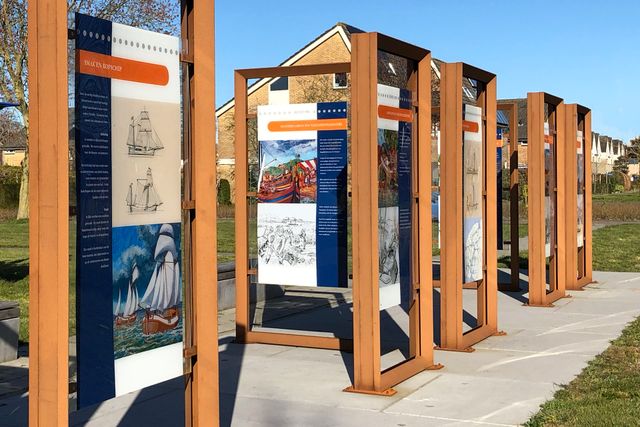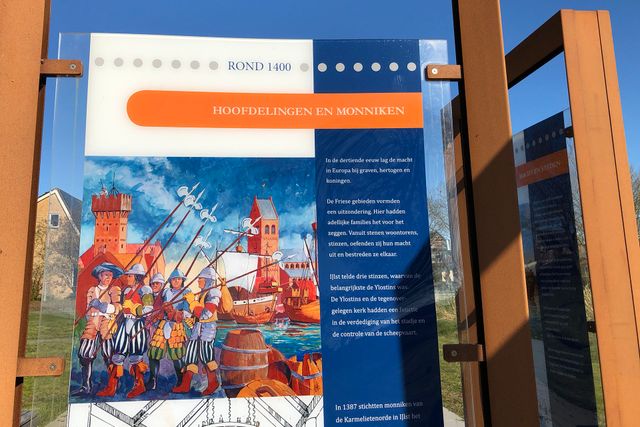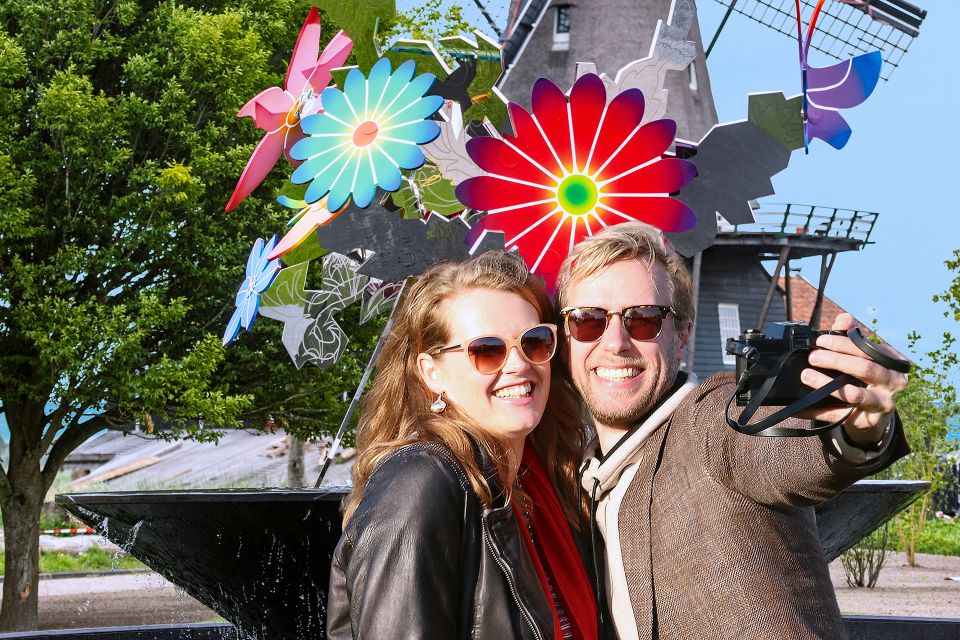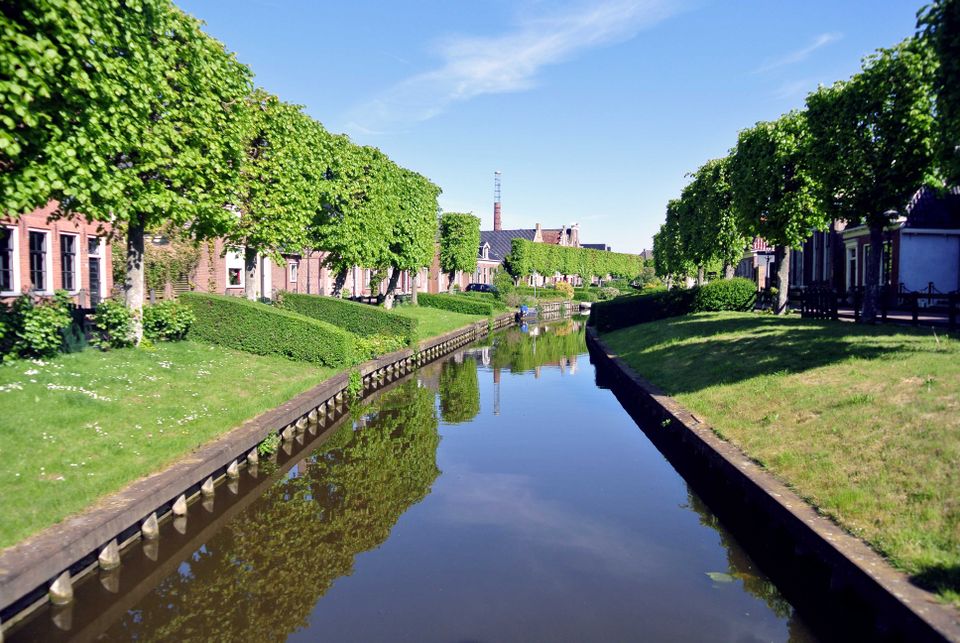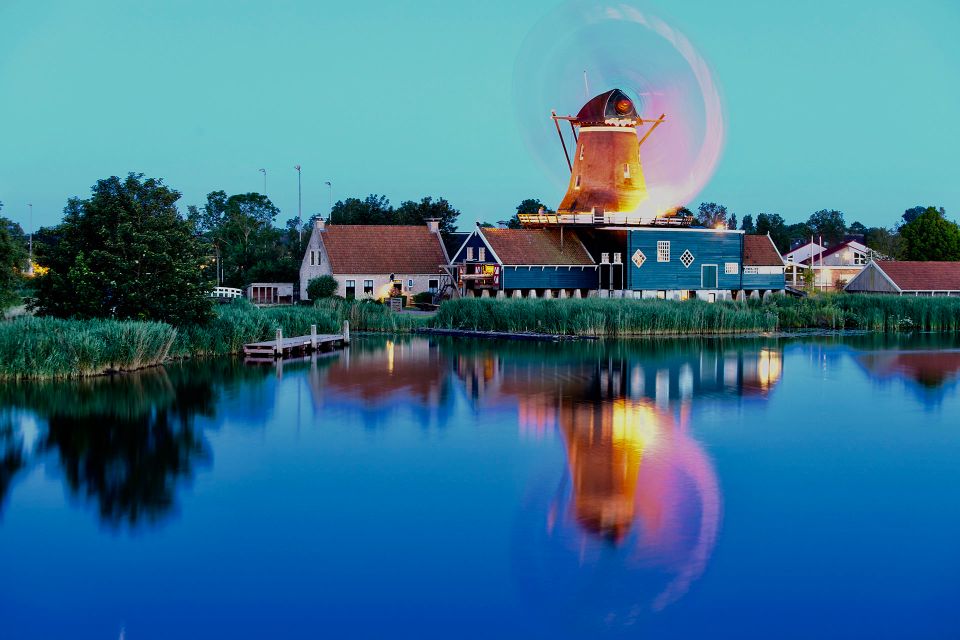Blog: 7 Things to see and do in IJlst
IJlst is probably not the best known Frisian city. Still, many Dutch people have memories of IJlst through the wooden skates, tools and toys made by Nooitgedagt. IJlst has a protected cityscape, partly due to its unique and characteristic ‘overtuinen’ waterside gardens. These border on each side of the Ee River that runs through the city. The city is home to many treasures, and is famous for its shipbuilding and trading position. IJlst has dozens of national monuments and the most colourful fountain of the 11Fountains route. In other words: don't miss it! Read here 7 tips to see and do for your visit in IJlst
Discover the 7 treasures of IJlst
1/ Waterside Gardens
Unique and characteristic to IJlst are the waterside gardens on each side of the Ee. A river that almost resembles a city moat. In days gone by, the small common yards were used as bleaches, a spot where the white laundry could be left in the sun to bleach. The Netherlands had many more of these shared gardens back then, but virtually all of them have disappeared by now. Luckily for us, IJlst has preserved them, and the villagers cherish them for the historic jewels that they are.
Visit the waterside gardens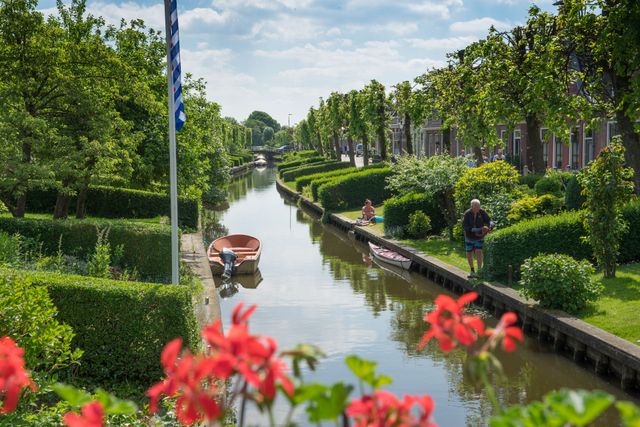
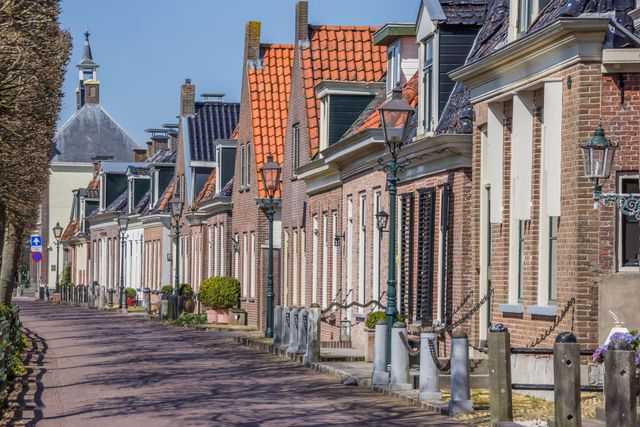
2/ De Rat wood sawmill
Nearly everyday, this iconic IJlst mill still produces shelves from sturdy timber. After all, the UNESCO trade of miller is practised here. A visit to this wood sawmill brings history back to life. Were you aware that this mill was actually first built in the Zaanstreek region in the northwest of the Netherlands, and then moved to IJlst as a construction package, to be rebuilt on De Geeuw river?
Visit the windmill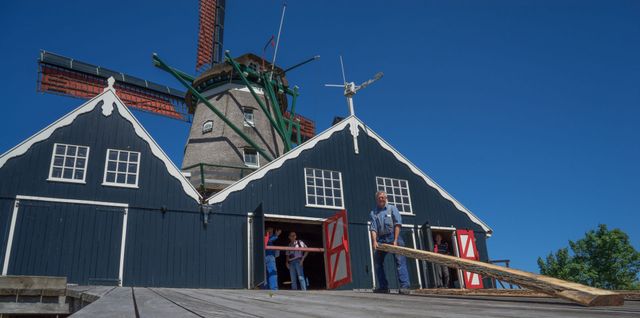
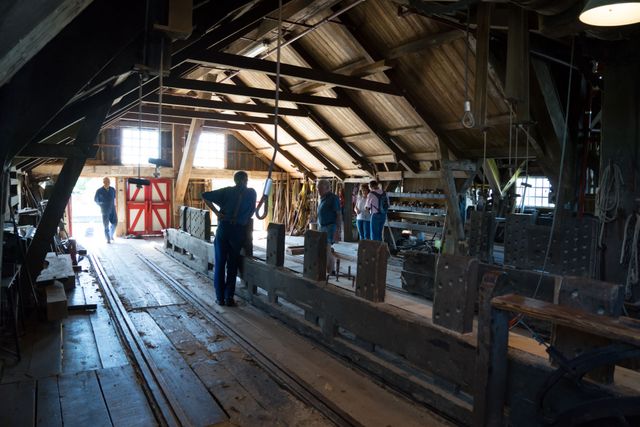
3/ Immortal Flowers fountain - Rikka / Shinji Ohmaki
The 'immortal flowers' fountain visualises the age-old connection between mankind, culture and nature. The Japanese artist Shinji Ohmaki has brought the origins of the city to life by combining flowering plants native to Friesland with the ancient Japanese flower arranging art of 'Ikebana'. The most colourful fountain of the 11Fountains project can be admired in a small park created specially for that purpose at Dassenboarch in IJlst.
Read more about the fountain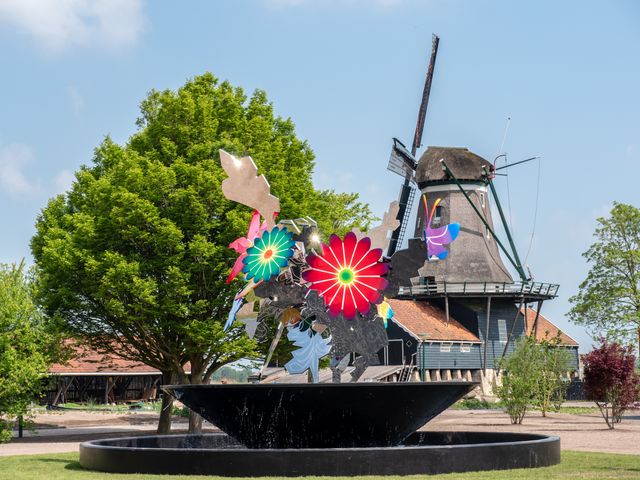
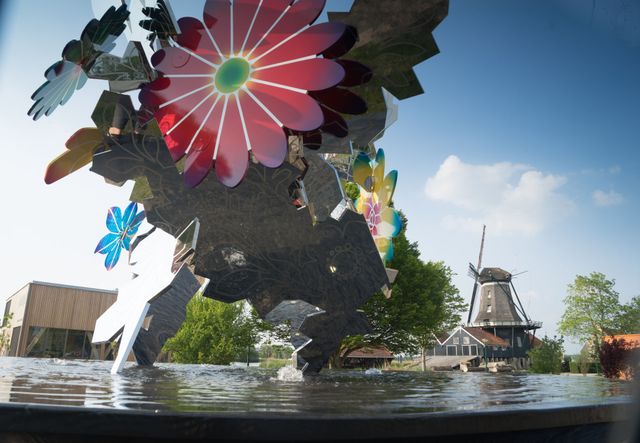
4/ IJlst wood city
The Frisian city of IJlst is sometimes also called 'Wood city'. If you would like to know why, pop into the Museum Houtstad IJlst, only a hop skip and jump from the mill and the fountain. Here you'll find the old steam saw previously owned by the Wood merchant known as Wed. W.J. Oppedijk, still in operation. During special steam festivals, the original sawing frame is once again driven by a steam locomobile.
Visit the museum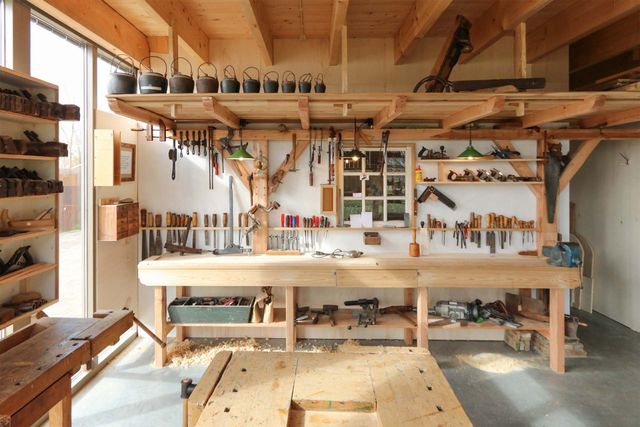
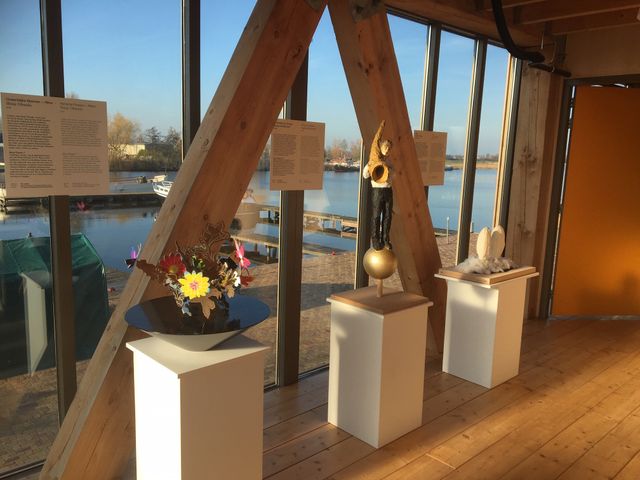
5/ Nooitgedagt chimney
Many of the older generation of Dutch children will remember playing with wooden toys made at the famous Nooitgedagt factory. The silhouette of IJlst would not be the same without the old factory chimney, on which the letters of the Nooitgedagt name can be read from top to bottom. For many decades, this was a leading factory in the design and production of ice skates, children's toys and particularly tools.
Read more about Nooitgedagt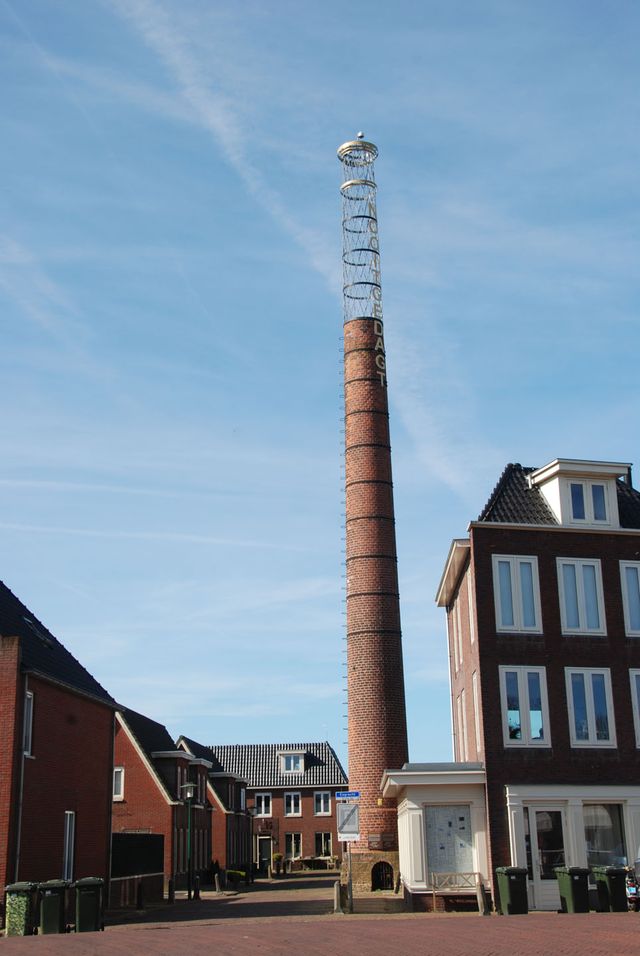
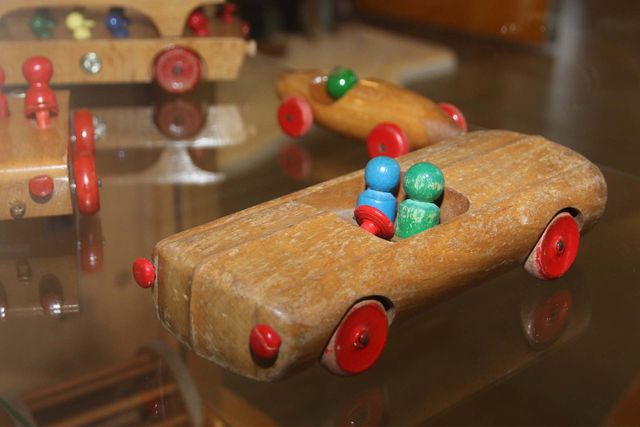
6/ Former city hall
Number 49 Galamagracht, with its slate roof, towers above its neighbouring buildings. This is the former city hall of IJlst. Now a listed building, it was constructed in 1859 to a design by Albert Breunissen Troost. It was the third city hall on this site. IJlst is now part of the of Súdwest Fryslân municipality, whose city hall is in Sneek. 49 Galamagracht has been turned into a residential home. IJlst’s coat of arms and the ship De IJlster Kogge can be seen above the door.
Read more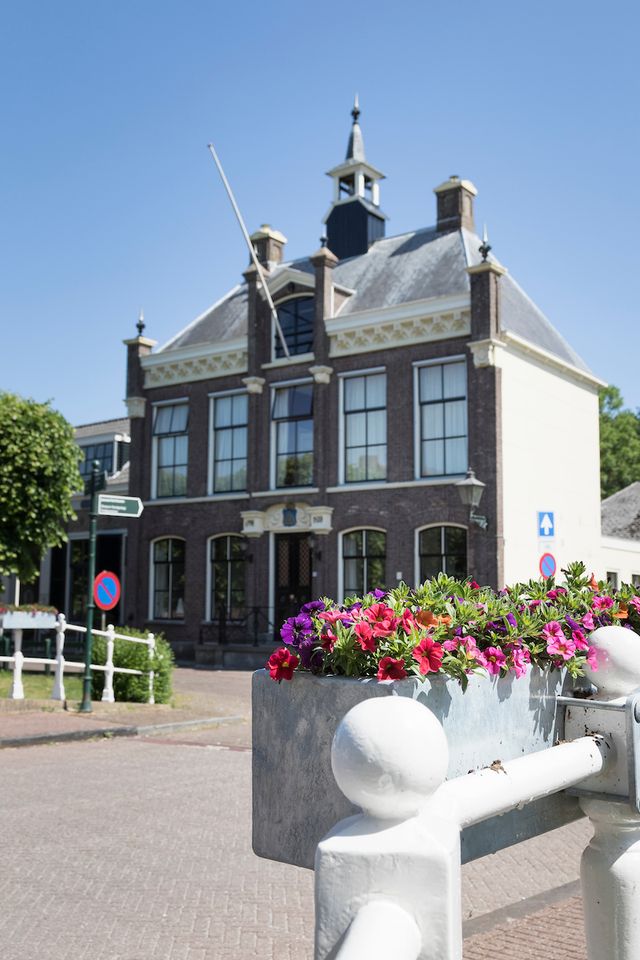
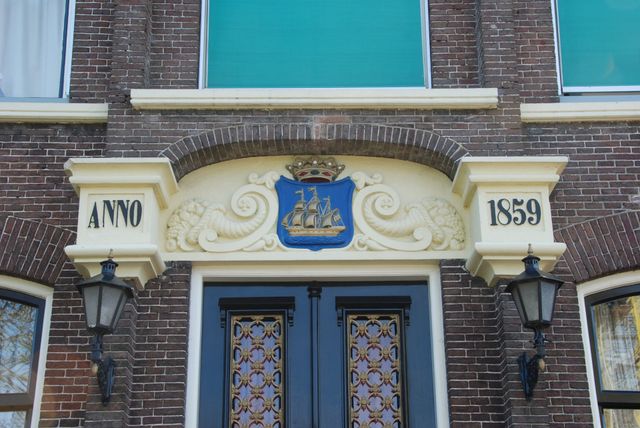
7/ Outdoor exhibition: City and Shipping Panels
Take a good look at the nine panels of this permanent outdoor exhibition in IJlst. See and read the illustrated narratives of the highlights of IJlst history. The central theme in this case is shipbuilding, shipping and trade. The paintings are a visualised perception by artist Johannes Terpstra, based on information gained by historian Jan Tabak during his research.
Visit the exhibition